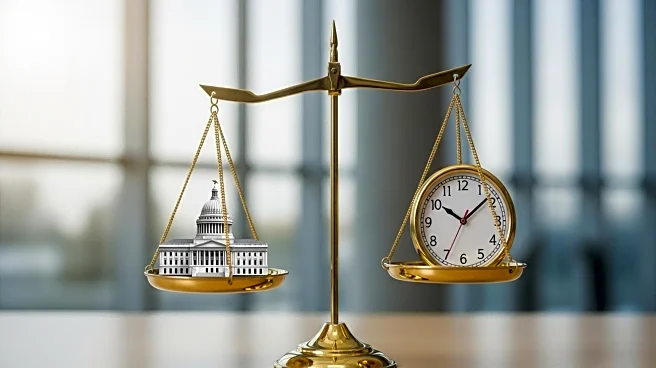What is the story about?
What's Happening?
The U.S. Senate is set to vote on a funding bill passed by the House of Representatives, aimed at preventing a government shutdown. The deadline for reaching a compromise is 12:01 a.m. on Wednesday, after which a shutdown would occur if no agreement is reached. The bill's passage is crucial to maintaining government operations and services. The situation underscores the ongoing challenges in reaching bipartisan agreements on budgetary matters, which have been a recurring issue in recent years.
Why It's Important?
A government shutdown can have widespread effects, disrupting federal services and impacting millions of Americans. Essential services such as national security and public safety could face operational challenges, while non-essential services may be halted entirely. Federal employees could face furloughs, and economic uncertainty may increase, affecting markets and consumer confidence. The political implications are also significant, as failure to pass the bill could influence public perception of government effectiveness and impact future elections.
What's Next?
If the Senate passes the bill, it will avert the immediate threat of a shutdown, allowing government operations to continue without interruption. However, the underlying issues of budgetary disagreements remain, suggesting that further negotiations will be necessary to address long-term fiscal challenges. Political leaders may face pressure to find more sustainable solutions to prevent future shutdown threats, potentially leading to broader discussions on fiscal policy and government spending priorities.

















